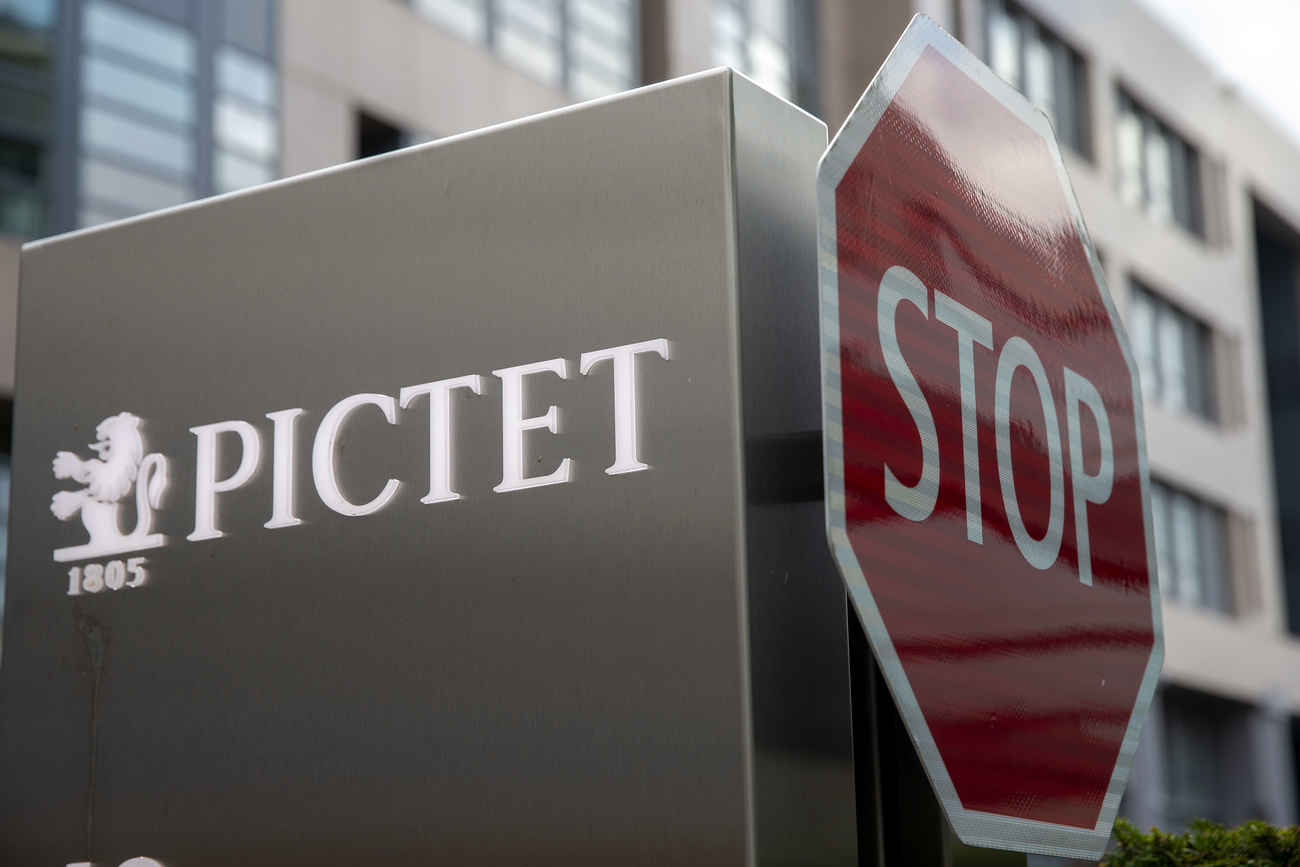
How the US tax evasion crackdown impacted Swiss banking
A $123 million (CHF107 million) penalty imposed by the United States on Pictet has closed a chapter on Swiss bank tax evasion scandals – but the book is far from finished.

The 218-year-old bank handed over the millions to defer a Department of Justice (DoJ) prosecution, having helped American citizens hide more than $5.6 billion in secret accounts.
+ Does dirty money need banking secrecy to thrive?
Pictet was the last of more than 100 banks to collectively pay out more than $7.5 billion during a decade-long crackdown by the US.
US pressure saw two banks collapse and put paid to Swiss banking secrecy. But tax evasion scandals continue to haunt the Alpine state.
In the beginning…
US action against Swiss banks started in 2009 with UBS paying out $780 million to defer a tax evasion prosecution.
But the US authorities were enraged to discover other banks competing to entice tax dodging clients away from UBS.
Faced with the prospect of banks being frozen out of the US market, the Swiss government agreed in 2013 to the “Swiss Bank Program”, which offered banks the chance to come clean and pay a fine to avoid prosecution.
Paying the price
The Swiss Bank Program was wound up in 2016 with more than 80 Swiss banks, or foreign bank branches in Switzerland, paying out $1.36 billion in damages.
But 14 banks, including some of the heavyweights of the Swiss industry, were not included in the scheme as the DoJ had already started prosecutions against them.
Of these banks, Credit Suisse paid the biggest penalty of $2.6 billion. Some other sizeable fines (see graph) boosted the total financial penalties paid out to more than $7.5 billion.
Pictet was the last of all the banks to settle its case, ten years after the Swiss Bank Program was introduced.
Beyond the money
US prosecutions proved too much for two Swiss banks that were forced into liquidation under the stress of the litigation.
In 2012, the collapse of Wegelin, then Switzerland’s oldest private bank that was founded in 1741, forced the Swiss government to negotiate terms with the US to end prosecutions.
This was still not enough to prevent the demise of Bank Frey in 2013.
But the most profound change to the Swiss financial sector was the severe dilution of banking secrecy, which had shielded foreign tax dodgers for generations.
Secret numbered bank accounts have now been replaced by tax treaties with numerous countries that force Switzerland to reveal the extent of foreign funds held in Swiss bank coffers.
The end?
Massive fines, collapsing banks and the death of Swiss banking secrecy have failed to completely see off the spectre of tax evasion and money laundering.
The US assault on Swiss banks encouraged other countries to follow suit.
In 2013, UBS was put under formal investigation for alleged tax evasion offences in France. The case is dragging on a decade later, with UBS still contesting previous court rulings that found the bank guilty of criminal offences.
The Swiss financial centre remains in the crosshairs of US prosecutors and lawmakers. Earlier this year, a US Senate Commission accused Credit Suisse of continued tax evasion chicanery even after it was fined $2.6 billion in 2014.
And it’s not just banks. In 2021, the DoJ indicted six individuals and a Swiss financial services firm for alleged involvement in a global tax evasion scheme.
End of Swiss private banks?
The death of strict banking secrecy has also had a dramatic effect on the private banking sector.
The old school Swiss private bank is a private business, run by partners who each share the burden of losses.
Since the US Swiss Banking Program, numerous private banking partnerships, including Pictet in 2014, have changed business model to limit the liability of partners.
The traditional Swiss private bank has become a dying breed, numbering just five such banks at the end of 2022.

In compliance with the JTI standards
More: SWI swissinfo.ch certified by the Journalism Trust Initiative






























You can find an overview of ongoing debates with our journalists here . Please join us!
If you want to start a conversation about a topic raised in this article or want to report factual errors, email us at english@swissinfo.ch.